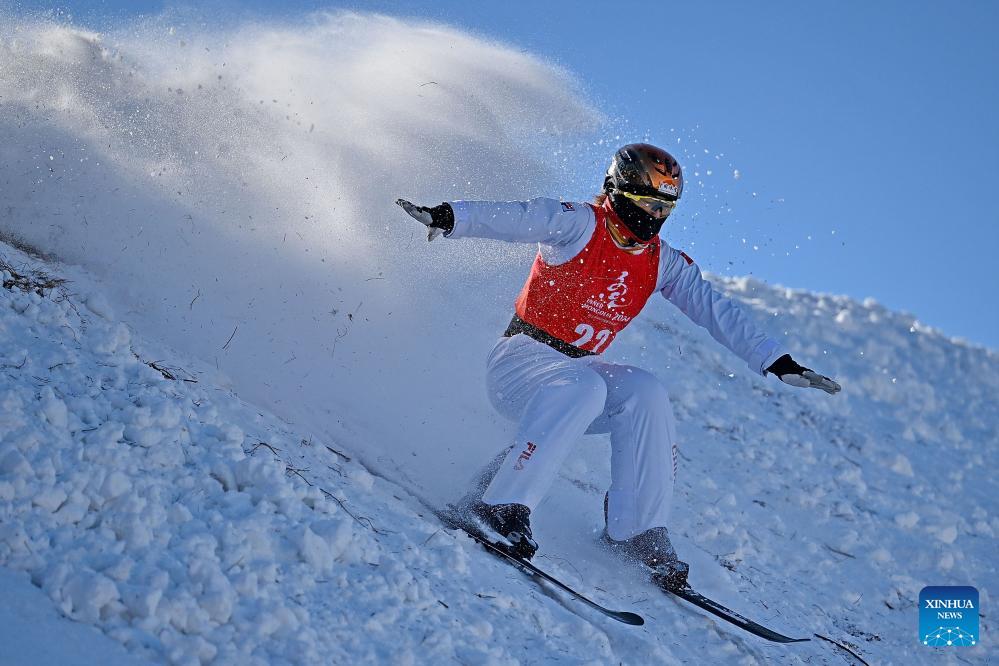
 0 Comment(s)
0 Comment(s) Print
Print E-mail Xinhua, February 22, 2024
E-mail Xinhua, February 22, 2024
International Ski and Snowboard Federation (FIS) president Johan Eliasch has spoken highly of the rapid growth of China's skiing and snowboard community.
In a recent interview with Xinhua, Eliasch highlighted the great potential in China's skiing and snowboard market.
He also mentioned the significant increase in the number of Chinese skiing enthusiasts, especially among the younger, tech-savvy generation.

Xu Mengtao of Liaoning competes during the freestyle skiing women's aerials competition at the 14th National Winter Games in Hulun Buir, north China's Inner Mongolia Autonomous Region, Feb. 21, 2024. (Xinhua/Mu Yu)
"They will be young, digital natives who will be enthusiastic and bring an entirely new dimension to our sports," Eliasch remarked, before acknowledging the achievements of Chinese athletes in several new skiing and snowboard disciplines.
"China is showing increasing promise and improving results in many of the FIS events. Specifically in our younger disciplines, such as freeski and snowboard, China is a strong contender, which bodes well for generating interest in the next generation of athletes."
The FIS chief also expressed his desire to leverage the Olympic legacy of Beijing 2022 by bringing more international skiing events to China.
"We are working on using FIS venues well into the future and, for example, had a great Big Air event in Beijing and the successful implementation of the Aerials World Cup in Changchun last December," he said.
While traditional skiing disciplines such as Alpine and cross-country remain fringe sports in China, Eliasch revealed FIS's plan for promoting ski and snowboard events in emerging winter sports communities.
"We are in the process of centralizing our broadcast and media rights management as this will lay the foundations on which we can build value. There are new technologies to be harnessed, new audiences to inspire, and new markets to explore.
"Centralization is essential for better products and planning, investment, and opportunities for our athletes, our disciplines, and all our national [and regional] associations," he continued.
Addressing the threat of climate change to snow sports, Eliasch emphasized the dual responsibility of his association towards athletes-fans and the planet, noting the need for flexible scheduling and locations of FIS events to adapt to global warming effects.
"For our athletes and fans we need to keep making our sport attractive and ensure that our calendar is rich enough that our athletes can make a living from the sport," he said.
Eliasch also highlighted FIS's responsibility to the sustainable development of skiing and snowboard sports.
"FIS is committed to promoting sustainability in all aspects of our operations, not least with our recently published FIS Impact Programme, our roadmap to a more sustainable and inclusive sports ecosystem."